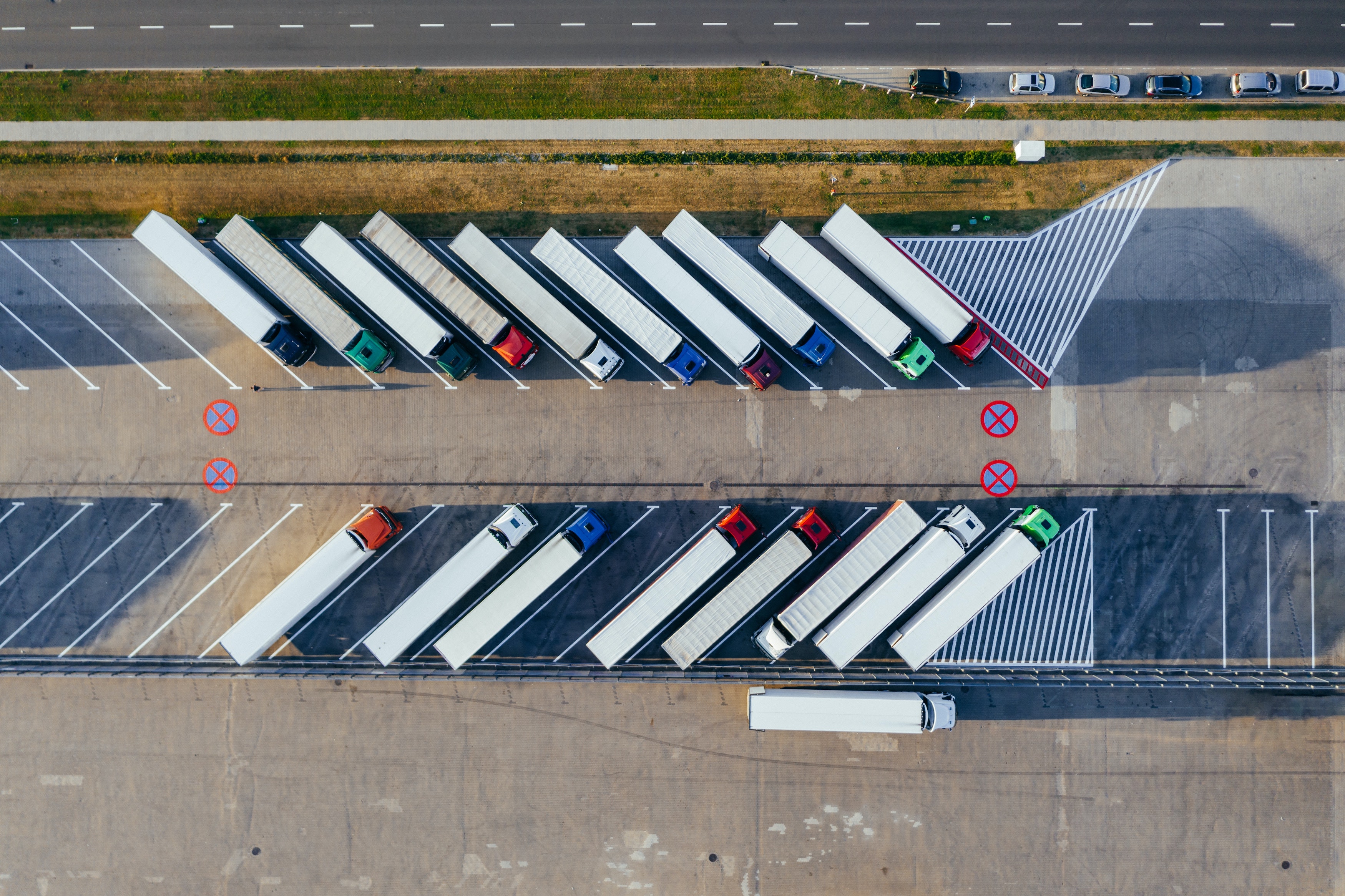Trucks move the economy of the United States forward – moving 72.5% of all the country’s freight. The trucking and logistics industry is essential as all other businesses depend on carriers to deliver goods and raw materials. While the shipping business may be highly lucrative, it has also gained notoriety in recent years as one of the most dangerous.
It’s estimated that road accidents involving large trucks, which total an estimated 500,000 per year, will become the fifth largest cause of death in the U.S. by 2030. Aside from truck accidents, numerous other dangers are present when you own and operate any type of transportation company.
In this article, we will discuss the exposure to liability that trucking and logistics companies and their owners face as part of the ordinary course of business, how you can mitigate the risks and limit your personal liability exposure, and what options are available when you want to protect your assets and create a legal shield around you and your business’s assets.
Limit Personal Liability with Separate Entity Structures
Protecting yourself and your personal assets begins even before a single run is scheduled by the trucking and logistics company. We first want to determine which business entity, or combination of entities, will offer you the maximum protection when issues arise in the future. There are two entity structures we use to help you protect your personal assets from claims or creditors:
- Corporation (Inc. or Corp.)
- Limited Liability Company (LLC)
If you are operating as a sole proprietorship and not as a formal entity, your personal assets are likely reachable by creditors and could be used to satisfy court judgments.
By forming a corporation, your business is a separate legal entity apart from you. This means when the business incurs liabilities, you as the owner are not personally on the hook for those liabilities except in certain circumstances, such as if you were to act improperly or if the corporate formalities are not sufficiently maintained.
In addition to your operating entity, we want to protect your business assets and personal assets by forming a separate LLC to hold your trucks, trailers, flatbeds, and any other high-value equipment and machinery used in or leased by your business. After putting your equipment into an LLC, the equipment is then leased back to your operating entity. By separating the equipment from your operating corporation, it becomes protected from the creditors of your trucking company.
Compliance with State and Federal Licenses, Permits, and Regulations
Both state and federal agencies impose strict regulations and hefty fines due to the various hazards and threats to public safety associated with operating a trucking company. The Federal Motor Carrier Safety Administration (FMCSA) monitors and ensures compliance with these commercial regulations. The FMCSA Registration Process includes getting a USDOT number, hazardous materials safety permit, operating authority, and safety assurances.
In addition to the compliance requirements for the trucking company, each company also needs to register and obtain permits and licenses for each tractor, trailer, and driver.
Drivers need to obtain a Commercial Driver’s License (CDL) through their home State as well as special endorsements if the driver will be transporting certain cargo deemed to be hazardous materials.
Now, if a driver causes an accident and is found to have been under the influence, you have appropriately maintained regulatory compliance and corporate compliance, you’ve taken two steps toward protecting your business from liability.
The FMCSA will declare the driver an imminent hazard to public safety and will order the driver not to operate any commercial motor vehicle pending an investigation. While banning a driver may seem to be that driver’s sole problem, you, as the business owner, could be facing exposure if you were negligent in your due diligence.
Make Trucking Operations Safety A Priority
Truck driver safety is two-fold in the transportation industry:
- Truck and trailer safety for your commercial motor vehicle, and
- Driver safety and training
Commercial Motor Vehicle Safety
The Large Truck Crash Causation Study by the FMCSA discovered that mechanical defects, often involving tires and brakes, are the most common causes of truck accidents. Even with the electronic systems onboard in newer vehicles, trucks can still be subject to mechanical defects and normal wear and tear.
The sheer weight of these large trucks poses an inherent danger to the truck driver and also to passengers in nearby vehicles while on the road.
Driver Safety & Training
Excessive driving is also a frequent cause of trucking accidents. As trucking timelines work on an often-tight schedule, drivers may feel pressured to ramp up their travel speed or skip rest periods, especially when a delay could result in damaged goods.
The trucking and transportation industry has become synonymous with drivers working long hours, experiencing fatigue, and inevitably causing fatal truck accidents. The FMCSA determined the likely cause of these accidents to be drivers working long hours, which resulted in the establishment of the 11-Hour and 14-Hour rules, and other hours of service regulations.
Suppose your company failed to maintain a rig properly and for some reason skipped the manufacture-suggested maintenance – who would be responsible for the accident?
Or, suppose you had a driver who was in an accident and who is also found to have inaccurate logbooks pursuant to DOT guidelines?
Can you always prevent this? No. But you can protect against this kind of real threat to your financial wellbeing by implementing an asset protection plan before the claims arise.
Plan for the Cost of Equipment Underutilization
As your business grows, we see trucking company owners acquire new trucks and other equipment to meet the demands of customers. However, we have seen periods when the trucking industry experiences a crunch, and there is less demand resulting in a decision by ownership to idle some of the fleet.
What many business owners don’t realize is that even when trucks are not running, they are still costing you money. As an example, the business must pay the truck lease payments, storage fees, insurance, and so on. When the rig is ready to rejoin the operational fleet, the truck will need to be inspected by a mechanic to ensure it’s still in well-working order.
Sometimes, a business will not have enough cash flow to maintain these idle trucks, and you will be forced to shell out money from your personal savings to cover the business expenses. To reduce equipment underutilization, some trucking owners choose to rent out their idle trucks to a third party and require them to cover those costs.
But what happens if you’re business is not able or willing to pay the holding costs until you find a third party? Your creditors will quickly look to your company and to you personally to satisfy any debts. Without any asset protection measures in place, a few months of slow business could mean the end for your business.
Avoid Employment Lawsuits by Properly Classifying Your Workforce
Who can forget the $100 million settlement reached with Uber over the alleged misclassification of its drivers in California and Massachusetts?
Getting sued by one employee or contractor is a pain, but imagine getting sued by a group – perhaps hundreds or thousands of drivers – each asking you to pay them back wages because, while you treated them as independent contractors, they believe they should have been classified as employees and thus are entitled to wage differential, overtime pay, and holiday pay.
A landmark decision involving misclassification of truckers is the ruling in Dynamex Operations, where the Supreme Court of California developed the “ABC Test” to determine whether a worker has been “suffered or permitted to work.”
What business owners should take away from the Dynamex case and other misclassification lawsuits is that the employee-employer relationship is a term defined by law, and you should seek the help of legal counsel to help you review your existing employment agreements or owner-operator agreements so that the terms of the contracts are clear between all parties.
A comprehensive asset protection lawyer would also review your training materials and your management operation procedures to make sure your company is not exercising control over those individuals who are classified as independent contractors.
Anticipate Cybersecurity Threat and Limit Business Cybersecurity Liability
Cyberattacks targeting the trucking, transportation, and logistics industry are on the rise, with the most vulnerable victims being small to medium trucking companies due to common delays with implementing the most current and sophisticated cyber protections.
In 2018 alone, the average cost to clean up a data breach in the transportation industry was about $3.77 million, according to a study conducted by IBM. You should implement cybersecurity best practices in your business to avoid shelling out hefty sums trying to clean up a massive data breach.
As profitable as a trucking business may be, it’s also one of the riskiest, and that elevated risk has potentially exposed or will expose your personal wealth if and when an incident occurs.
Any truck. Any malfunction. Any Driver.
Any run. Any vendor. Any partner. Any time.
Next Steps for Trucking Owners: Take Action
It could happen at any moment – as the trucking industry operates around the clock, you literally have active risk after you’ve gone to bed at night.
Now that you know some of the threats involved in operating your trucking business, you have a better grasp of some of the vulnerabilities you face. The lawyers at Sollertis are exclusively dedicated to practicing asset protection law and succeed at preserving the wealth of our clients.
You started your business to generate wealth, not to spend it paying off frivolous claims or costly litigation fees to fight off a lawsuit. What if you were so insulated from risk you forgot what it was like to worry? Please take the next step and contact our office and ask what a roadmap to total business and personal asset protection would look like for you.






